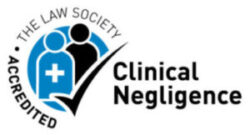
If you have found this infographic useful and would like to publish it on your our website or blog click here for the embed code.
Read the full report below:
The lack of breast cancer screening for women under 50 and over 70 has been a controversial issue for many years, but now the NHS Breast Screening Programme (NHSBSP) is now being gradually extended to women aged 47 to 49, as well as to those aged 71 to 73. This age extension programme is expected to be fully complete throughout the UK by 2016, and although there are certain challenges that come with screening younger women, the latest research does suggest that it will have a positive impact in helping to reduce the mortality rate of women with breast cancer.
The latest figures revealed by Cancer Research UK show that breast cancer is the most common type of cancer among women. It accounts for 45% of all cancers in women between the ages 25-49. Other common types of cancer in females include malignant melanoma and cervical cancer, both of which account for 9% of all cases of cancer in women in this age group. The NHSBSP invites women who are between the ages of 50 and 70 to a screening that is carried out every three years, although this has recently been extended to include women between the ages of 47 and 73. Women who are above this age may also attend the screenings but will not be invited; if you are younger, it becomes a much more difficult process.
A meta-analysis of screening mammographies (the process of using low-energy X-rays) estimates that the process is 10% less effective in women under the age of 50 due to younger women having a greater density of breast tissue, making their mammograms harder to read and interpret. This has resulted in a minimum age limit of 47 for routine screening for breast cancer. However, women who have a higher risk of developing breast cancer and are under the age requirements for the NHSBSP are offered an annual mammogram screening. Meta-analysis of all published breast cancer trials worldwide show that screening women aged 39-49 would reduce the mortality rate from breast cancer by 15%-17%, although it is unclear how much of this reduction is due to the routine screening that they will receive after 50.
Despite the obvious benefits, there are also various risks involved in screening younger women, including false-positive results and the inevitable anxiety and stress caused by them, cancer misdiagnosis and possibly over-diagnosis (identifying and treating early-stage cancers which may never have presented a risk to the patient).
A late cancer diagnosis could also occur if the routine screening hasn’t been carried out. According to figures published by Cancer Research UK, women who attended their screening between the ages of 55-79 had a 20% relative reduction of their death being caused by breast cancer compared to women who didn’t attend their routine screening. With more than a quarter of breast cancer in females being detected by screening, it means that many female cancer patients could be receiving a late diagnosis due to not been screened.
Over-diagnosis is a major factor in the discussion about the NHS routine screening age. Although there are 15,500 instances of breast cancer diagnosed through screening in the UK each year, 4,000 of these will be cases of over-diagnosed cancer, causing patients to have treatment for ailments that would never have caused them harm. This over-diagnosis is significant; according to research carried out by Macmillan Cancer Support, approximately 500,000 people in the UK are experiencing poor health or disability after treatment for cancer – approximately one in four (25%) of people diagnosed with the disease.
Cancer Research UK statistics reveal that, over a period of 20 years, for every 10,000 women who would have been screened, 749 women will be diagnosed with breast cancer. Of these 749 women, 157 will die from breast cancer. Of the 592 who survive, 168 will be diagnosed and receive treatment for cancer that wouldn’t have effected them in their lifetime.
With cancer causing more then one in four deaths in the UK, the evidence suggests that breast screening will reduce the number of deaths of women with the disease by about 1,300 a year in the UK. For those women who are diagnosed at the earliest possible stages of breast cancer, they will now have a 90% chance of surviving for around 5 years after the initial cancer diagnosis.
Personal injury solicitor at Blackwater Law, Dominic Graham, commented “We are very pleased at the news that more women will be invited to be screened for breast cancer but would encourage the NHS to go even further and screen many more women. A massive 40% of women diagnosed with breast cancer were not invited to be screened and therefore were only diagnosed after they discovered symptoms. This means the cancer was discovered later and often at a more advanced stage.
If breast cancer is not diagnosed early, the prognosis can be very poor and treatment is more intensive and, inevitably, more expensive.
Breast cancer is the most common cancer for women under 45 (2475 cases per year) yet these women are not currently being invited into hospital to be screened. We recognise that breast cancer screening can be slightly less accurate in younger women but question whether the NHS, due to intense budgetary pressures, are giving a higher priority to minimising short-term screening costs instead of focusing on increasing the rates of early diagnosis, which in turn, would likely reduce the overall cost of treatment in the long term as early intervention is not only cheaper for the NHS, it has a better chance of success. A win-win for patients and the taxpayer.”
If you feel this content is useful and would be interesting to your website audience please feel free to use the HTML code below to embed the infographic:
<a href="http://blackwaterlaw.co.uk/breast-cancer-screening-for-women-under-50/" target="_blank"><img src="http://blackwaterlaw.co.uk/wp-content/uploads/2015/10/breast-cancer-screening-for-women-under-50yrs.png" title="Breast Cancer Screening for Women Under 50" alt="Breast Cancer Screening for Women Under 50" width="600" height="5566"></a><br/>Breast cancer screening infographic and report created by <a href="http://blackwaterlaw.co.uk/" target="_blank">Blackwater Law</a> clinical negligence solicitors




